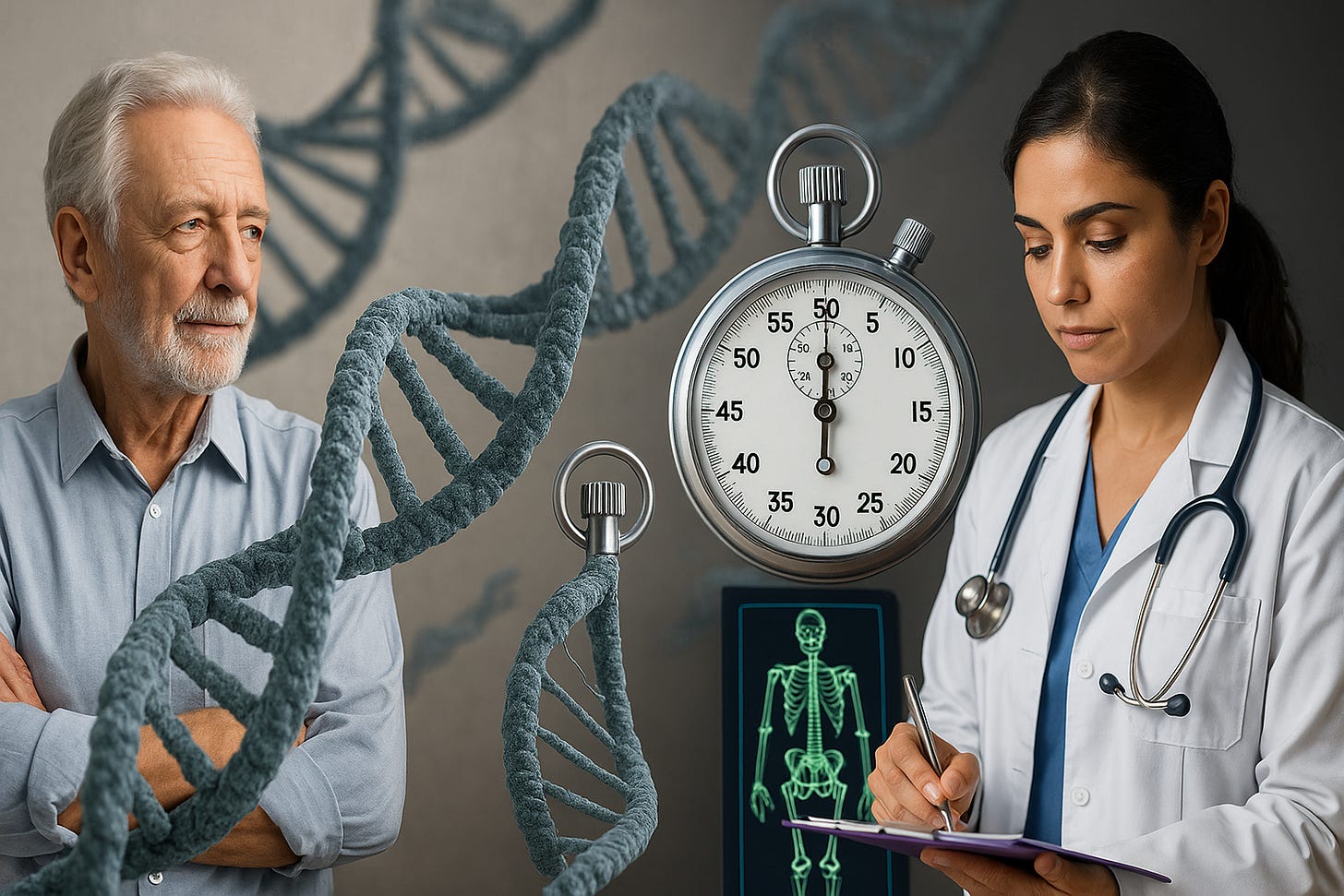5 Tests You Should Ask Your Doctor For If You Want To Catch Aging Early
Unlocking the Secrets of Longevity Through Proactive Health Screening
Aging isn't just about the number of candles on your birthday cake. It's about how your body feels, functions, and fights off disease. While we can't stop time, we can certainly outsmart it. By focusing on our biological age—the true measure of our body's wear and tear—we can take proactive steps to maintain vitality and health.
So, what are the essential tests to discuss with your doctor to catch aging in its early stages? Let's delve into the top five assessments that can provide a comprehensive picture of your health and help you age gracefully.
1. Biological Age Testing: Decoding Your Internal Clock 🧬
Chronological age tells us how many years we've lived, but biological age reveals how well our body is holding up. Tests like DNA methylation clocks (e.g., Horvath Clock, PhenoAge) analyze patterns in your DNA to estimate your biological age. These assessments can highlight accelerated aging, allowing for early interventions.
Additionally, blood-based biomarkers, such as glucose levels, LDL cholesterol, and inflammatory markers, offer insights into your body's aging process. Combining these tests provides a comprehensive view of your health trajectory.
2. Inflammation Markers: The Silent Saboteurs 🔥
Chronic inflammation is a key driver of many age-related diseases. Tests measuring high-sensitivity C-reactive protein (hsCRP) and interleukin-6 (IL-6) levels can indicate systemic inflammation, which is linked to conditions like heart disease, diabetes, and Alzheimer's.
By identifying elevated inflammation markers early, you can implement lifestyle changes or treatments to mitigate risks and promote healthy aging.
3. Bone Density Scan (DEXA): Guarding Against the Silent Thief 🦴
Osteoporosis often progresses without symptoms until a fracture occurs. A DEXA scan measures bone mineral density, helping detect early bone loss. The U.S. Preventive Services Task Force recommends women aged 65 and older undergo this test, but men and younger individuals with risk factors should also consider it.
Early detection allows for interventions like calcium and vitamin D supplementation, weight-bearing exercises, and medications to strengthen bones and prevent fractures.
4. Cognitive Screening: Keeping Your Mind Sharp 🧠
Memory lapses can be a normal part of aging, but significant cognitive decline isn't. Regular cognitive assessments can help detect early signs of conditions like Alzheimer's and other dementias. Tests such as the Mini-Mental State Examination (MMSE) or Montreal Cognitive Assessment (MoCA) evaluate memory, attention, language, and problem-solving skills.
Early identification of cognitive issues allows for timely interventions, including cognitive therapies, lifestyle modifications, and, when appropriate, medications to slow progression.
5. Comprehensive Metabolic Panel: The Body's Dashboard ⚙️
A comprehensive metabolic panel (CMP) provides a snapshot of your body's chemical balance and metabolism. It measures glucose levels, electrolyte and fluid balance, kidney and liver function, and more. Abnormal results can indicate conditions like diabetes, kidney disease, or liver disorders, which can accelerate aging if left unmanaged.
Regular CMPs help monitor your health status and guide necessary lifestyle or medical interventions to maintain optimal function.
Also read: 7 Longevity Lab Tests You Can Order Today (and What They Reveal About Your Future Health)
Conclusion: Taking Charge of Your Aging Journey
Aging is inevitable, but how we age is, to a significant extent, within our control. By proactively engaging with healthcare providers and undergoing these essential tests, we can detect potential issues early and implement strategies to maintain health and vitality.
Ready to take the next step? Schedule an appointment with your healthcare provider to discuss these tests and create a personalized plan for healthy aging.


